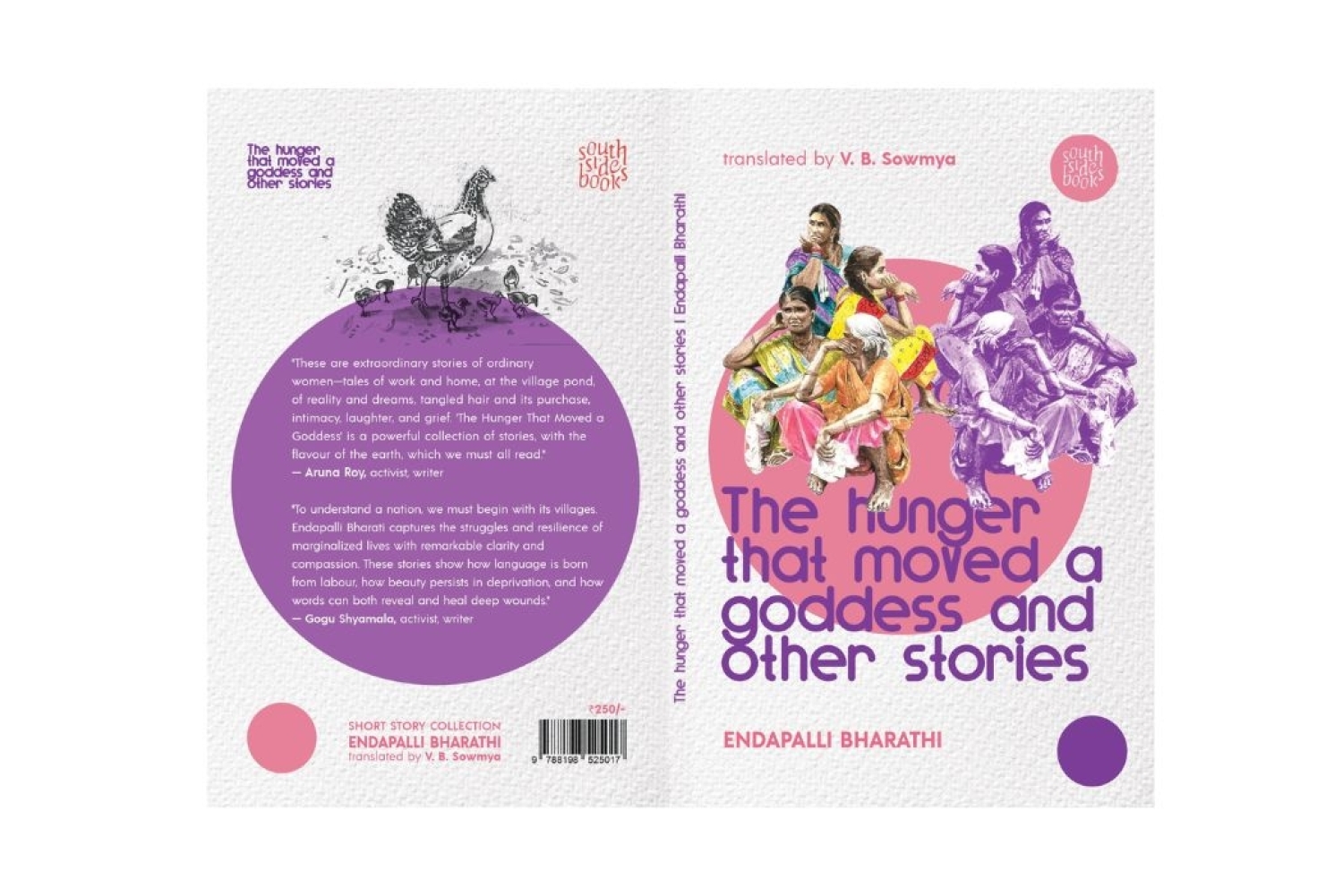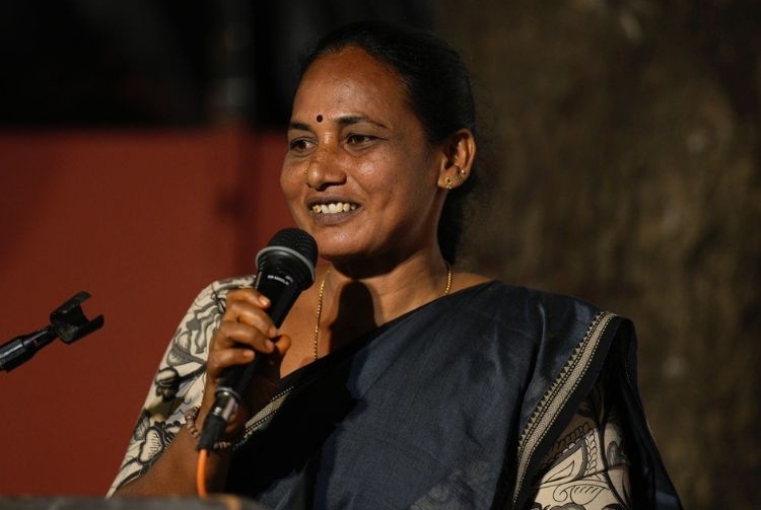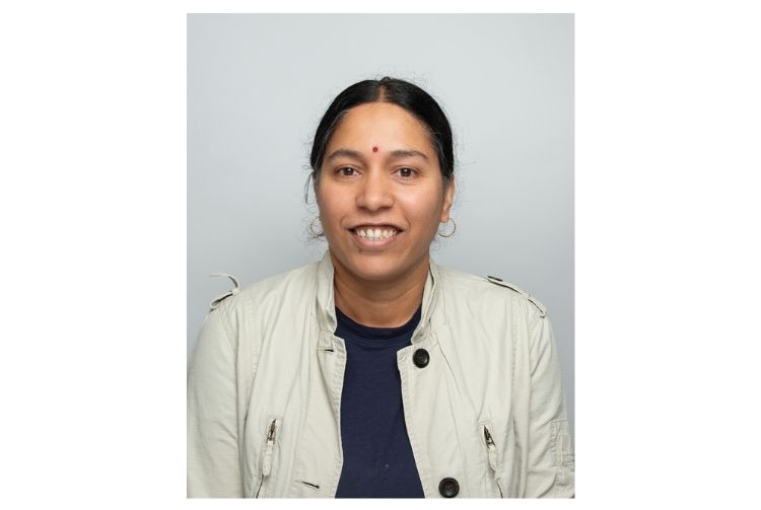

The Hunger That Moved a Goddess and other stories written by Endapalli Bharathi and translated by V. B. Sowmya brings the quiet resilience of rural Telugu women to the forefront. These are women whose routines carry the weight of caste, gender, and generational history, and whose stories rarely appear in contemporary Indian literature. Which is why, it is especially interesting how this collection veers away from the individual and is an ode to moments shared by a community of women. In the translator’s note, these narratives are described as ‘sketches of life in a small South Indian Telugu-speaking village community’. These stories are grounded in the belief that everybody deserves a voice, and that every life deserves equal respect. We spoke to the author to understand her motivations behind these short stories, and her hopes for the future of Telugu writing in India.
What inspired you to centre this collection around the everyday lives of women from rural Telugu speaking communities?
I was born and raised in a small village. For as long as I know, the past generations of my family have been from a village too. Money and caste are the two powers we have suffered from throughout. In addition, women also go through oppression by men within their own family. All the good and bad I experienced is associated with village life. This is the life I’ve always known, and I want to write about it for future generations.
Why do you write, and when did you start writing? Take us right back to the beginning.
Life is life, whether it is small or big. Our lives are no less than anybody's. I wanted to primarily talk about a woman's life on behalf of all of us. My guru, Kiran Kumari, encouraged me to write. My first short story collection came out in 2018; Edaari Batukulu, from which some of the stories in the translation were taken. Since then, I authored four short story collections and a novel. All of these talk about our daily lives.
What new dimensions do you hope to add to contemporary Indian literature by focusing on the quiet strength and routines of women?
We have a saying - ‘Everyday is a struggle, and you live for 100 years’. Everyone living on this earth deserves equal respect. Irrespective of what labels you have - money, fame, politics, violence - they are all temporary and only life remains at the end. That is the dimension I focus on. I am also trying to document our culture — songs, proverbs, riddles, and other aspects such as health, food, and medicine through my writing.
What do you hope readers take away from this collection?
When we visit a new place, we want to appreciate what is new and unique to that place. In this book, I want to introduce you to lives you don't know about. Life has a way of showing a path to everyone. Take what you want from the book.

Author: Endapalli Bharathi
The translator, V. B. Sowmya, took us through her relationship with language, some challenges she faced while working with certain specific cultural references, and why this collection is close to her heart.
Tell us a little about your translation process. We’d love a lens into the way you think of language, and the role it plays in making literature accessible to wider audiences.
I think the literature we read in Indian languages is very different from Indian English literature. Telugu is a language with a long literary tradition, and a rich and diverse culture. I want to bring some of that diversity and linguistic flavor into English translation, if possible. In particular, I want to look at translating the Telugu authors I like, who have not been translated into other languages before, and are also not very widely known among all groups of the Telugu audience.
When did you begin translating Telugu to English? Tell us a little about your relationship with both languages.
My first attempt at translating from Telugu to English was The Sharp Knife of Memory (Zubaan Books, 2015). This is an English translation of Kondapalli Koteswaramma’s Telugu autobiography Nirjana Varadhi. Prior to this, I did a little bit of English to Telugu translation, but not into English. I did not return to translation again until 2021-22, where I translated about 15 short stories into English and they started appearing in various webzines including Outlook, Out of Print, and Kitaab. Eventually, I started working on this book. I grew up learning both Telugu and English, like most urban people in India, but I find myself looking towards Telugu when I have to express myself. I write short stories and some non-fiction writing in Telugu occasionally. However, when it comes to translation, my preference is to translate from Telugu to English, as I find that to be a more important task than translating English to Telugu.
“Telugu is a language with a long literary tradition, and a rich and diverse culture. I want to bring some of that diversity and linguistic flavor into English translation, if possible.”
Is there a story in this collection that is particularly close to your heart? What made you want to translate these stories?
I picked these stories from two of Bharathi’s Telugu short story collections. Since I chose them myself, naturally, I liked all these stories. Amongst those, I particularly liked Scheduling With The Stars. I liked the descriptions of how a farmer’s calendar works and how they look at the stars and time their activities. I also liked stories that depict local traditions and festivals, such as The Bearer of Vows, Gowri’s Grace in a Village Kitchen, and Honouring the Past. My choice of stories was mainly driven by their depiction of the traditions, practices and daily experiences of the author’s community.
Did you face any challenges along the way — were there any cultural references that resisted translation?
Yes, there were plenty of challenges! Bharathi’s stories are written in a very specific dialect of that region/community. It is not easy to read even as a Telugu speaker if you are unfamiliar with the dialects. It is not impossible, but it will take time to get used to it. Naturally, there won’t be commonly known equivalents to all cultural references such as festivals, customs, foods, locally grown plants etc. After much thought, I decided to leave some native words as is, and add a short contextual explanation, instead of resorting to footnotes and the likes. I really appreciate the time Bharathi spent on clarifying these things to me without prejudice and South Side Books’ editorial team did a great job too!

Translator: V. B. Sowmya
Words Neeraja Srinivasan
Date 28-7-2025